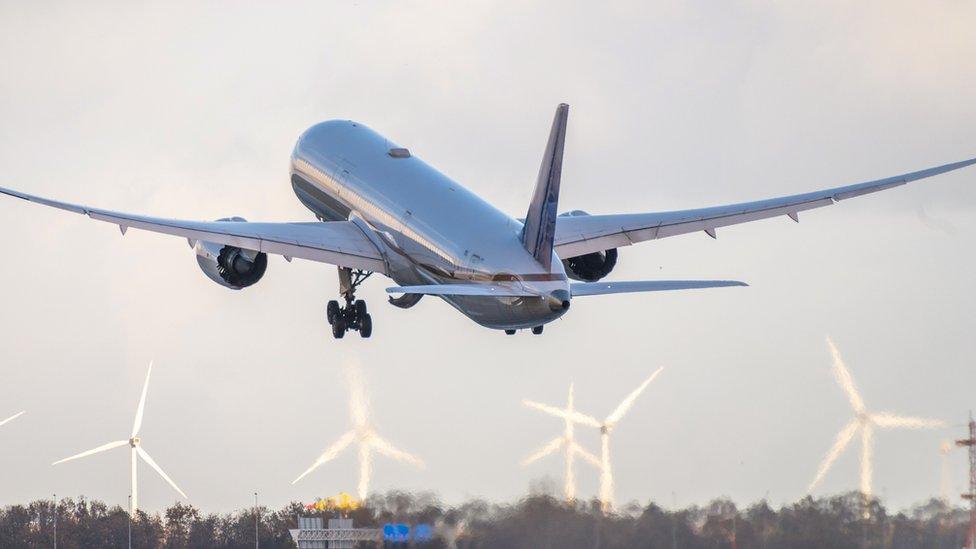Firm develops jet fuel made entirely from human poo
- Published
Gloucestershire firm making jet fuel entirely from human poo
A new aviation company has developed a type of jet fuel made entirely from human sewage.
Chemists at a lab in Gloucestershire have turned the waste into kerosene.
James Hygate, Firefly Green Fuels CEO, said: "We wanted to find a really low-value feedstock that was highly abundant. And of course poo is abundant."
Independent tests by international aviation regulators found it was nearly identical to standard fossil jet fuel.
Firefly's team worked with Cranfield University to examine the fuel's life cycle carbon impact. It concluded that Firefly's fuel has a 90% lower carbon footprint than standard jet fuel.
Mr Hygate, who has been developing low-carbon fuels in Gloucestershire for 20 years, said although the new fuel was chemically just like fossil-based kerosene, it "has no fossil carbon, it's a fossil-free fuel".
"Of course energy would be used (in production), but when looking at the fuel's life cycle, a 90% saving is mind-blowing, so yes, we have to use energy but it is much lower compared to the production of fossil fuels," he added.
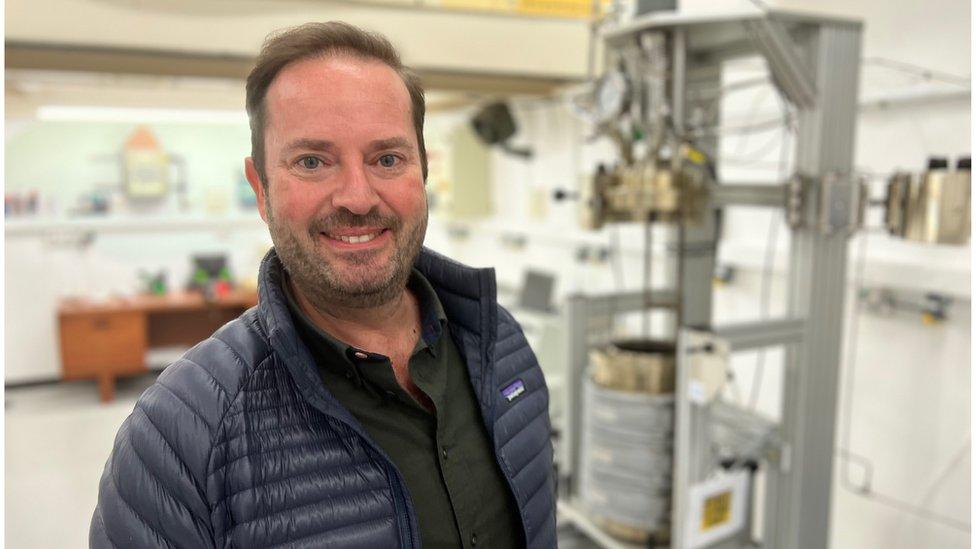
James Hygate said the new fuel is "hugely exciting"
Across the world, flying contributes around 2% of global carbon emissions, external, which contribute to climate change.
It is a small fraction, but growing fast. And taking carbon out of aviation is one of the hardest challenges.
Electric planes are being developed, with a company in the Cotswolds promising hydrogen-electric powered flights for a dozen passengers by 2026.
But it will be years, decades maybe, before mass air travel will be powered by completely new technology.
So finding new, greener ways to make kerosene without using fossil fuels has become a global gold rush.
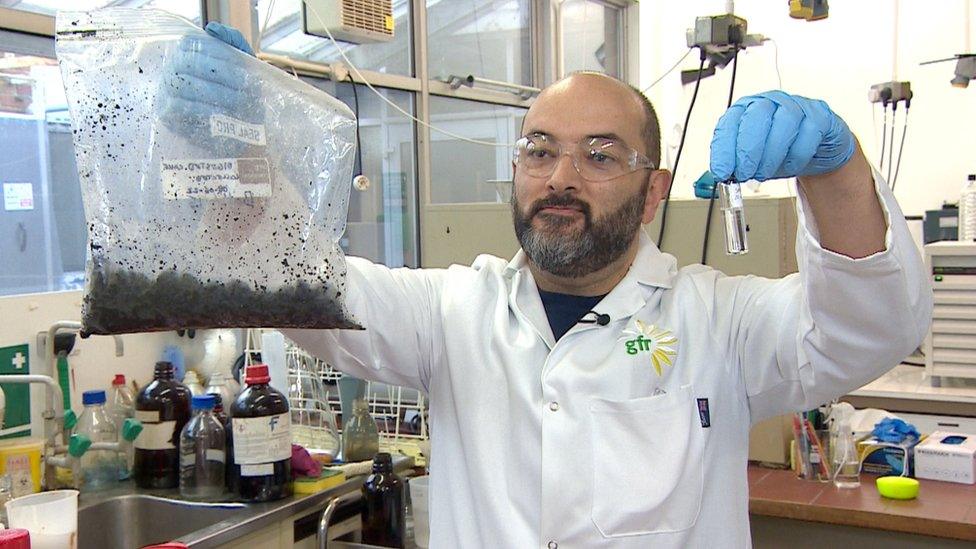
Dr Sergio Lima has made kerosene, right, from sewage sludge, left.
On a small farm in Gloucestershire, Mr Hygate began turning rapeseed oil into 'bio-diesel' for cars and trucks, external 20 years ago.
His company, Green Fuels, now sells equipment to turn cooking oil into biodiesel, and has clients all over the world.
Then he started looking for ways to make green jet fuel. They tried waste oils, waste food, even agricultural scraps.
Then they experimented on human waste.
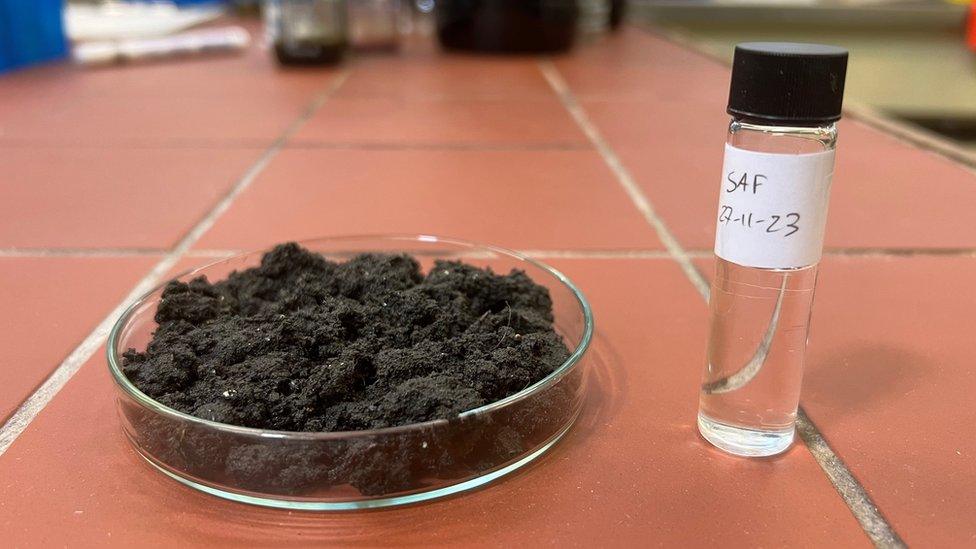
The sewage solids are chemically treated and end up as pure kerosene
He teamed up with a chemist from Imperial College, London, Dr Sergio Lima.
Together, they developed a process which transforms poo into power.
First, they create what they call "bio-crude".
It looks like oil: thick, black, gloopy. Most importantly, it behaves like crude oil chemically.
Dr Lima, who is also research director at Firefly Green Fuels, said: "What we are producing here is a fuel which is net zero."
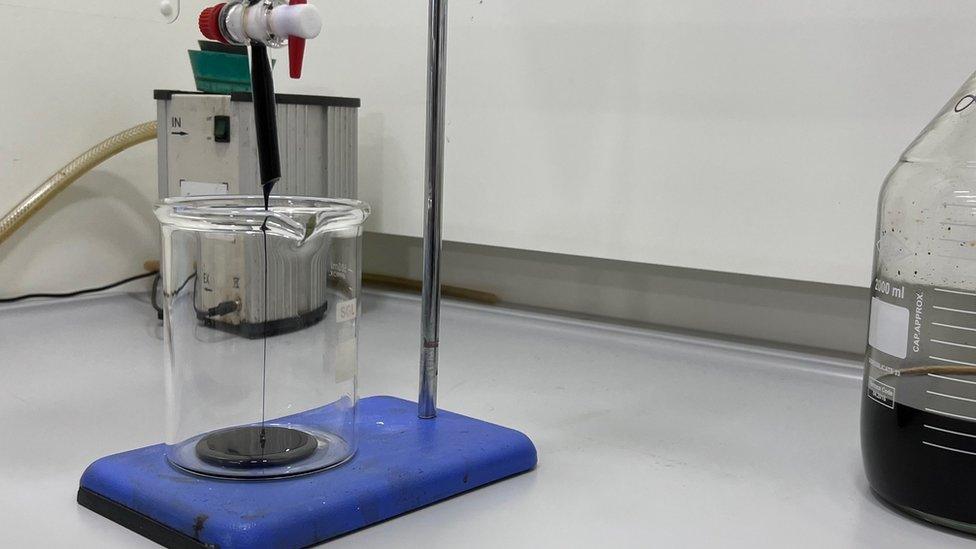
The "bio-crude" acts just like crude oil, and can be converted into kerosene
When Dr Lima first saw the results, he was thrilled.
"This is so exciting because it was produced from a sustainable feedstock, to which all of us are contributing."
The scientist showed me round his lab, including a mini version of the huge fractional distillation columns that tower over oil refineries.
His one does the same thing. The liquid is heated and then the gases are distilled at precise temperatures to obtain the right 'cut' for different fuel.
Drop by drop, a new clear liquid settles in the collection pipes.
"This is our bio fuel," he says with a smile.
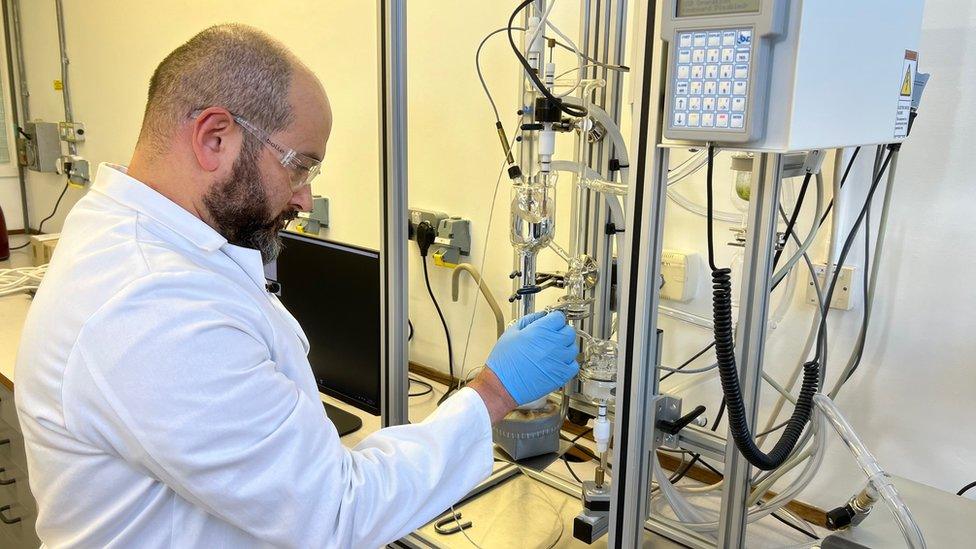
Sergio Lima uses a mini version of the distillation columns at oil refineries
"Seeing the final fuel is something amazing."
The bio-kerosene is now being tested independently at the DLR Institute of Combustion Technology at the German Aerospace Center, working with Washington State University.
Further future testing will also be carried out by the UK SAF (Sustainable Aviation Fuels) clearing House, based at University of Sheffield.
First results have confirmed the fuel has near-identical chemical composition to A1 fossil jet fuel.
The UK Department of Transport has awarded the team a £2m research grant.
Sustainable fuel 'critical' to decarbonise aviation
So they can make a test tube of kerosene in the lab.
That is a long way from replacing kerosene in the world's airports.
Mr Hygate has done his maths. Each human, he calculates, makes enough sewage in a year to produce 4-5 litres of bio jet fuel.
To fly a passenger jet from London to New York would need the annual sewage of 10,000 people.
And another 10,000 to come back.
Put another way, the UK's total sewage supply would meet about 5% of the country's total aviation fuel demand.
It may sound small, but he insists: "That's pretty exciting."
"There's a 10% sustainable aviation fuel requirement, that's a legal mandate. And we could meet half of that with poo."
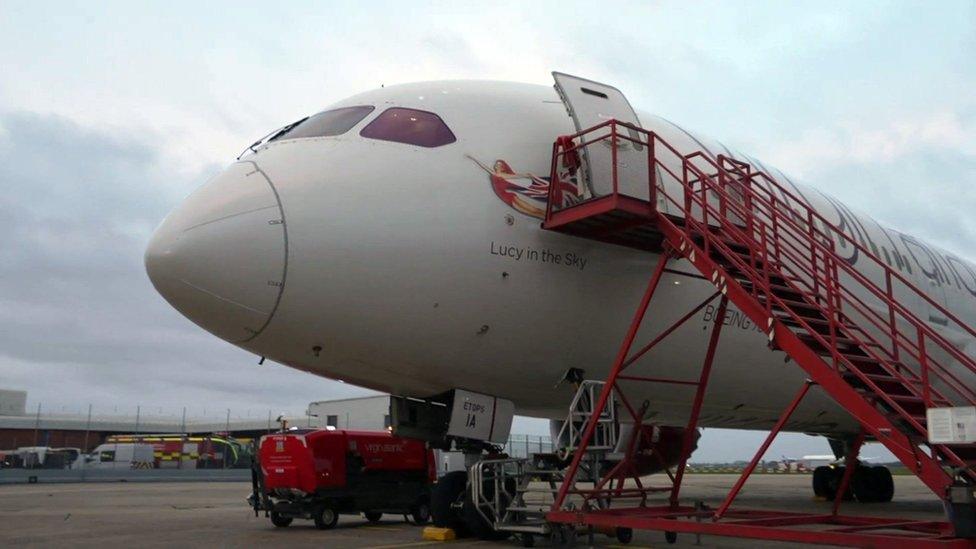
A Virgin Atlantic passenger jet was fuelled entirely with kerosene made from waste oils and corn waste
Fuel made from waste oils, corn oils or other non-fossil sources are called Sustainable Aviation Fuels.
They emit the same amount of carbon dioxide from the aircraft, but since the plants that originally made the oil captured CO2 while they grow, experts consider this an 80-90% reduction on fossil fuel carbon emissions.
Environmental campaigners insist that people just need to fly less, and use crops for food or energy production, not making jet fuel.
They are more supportive of the sewage-based fuel, because "human waste is perhaps the one form of rubbish that society really can't avoid producing", as Cait Hewitt, policy director of the Aviation Environment Federation put it.
Nonetheless, the International Energy Agency, external has said Sustainable Aviation Fuels are "critical to decarbonising aviation".
To show what is possible, Sir Richard Branson recently flew from London to New York on a flight entirely powered by fuel made from waste oils and corn waste products.
But today only 0.1% of aviation fuel is "sustainable".
Mr Hygate's target of 5% looks quite big in comparison.
Also he is using a feedstock nobody else wants, but is universal.
"Although it's been developed here in the south west of the UK," he says, "it's a global opportunity".
The company is now raising funds to build a full-scale demonstrator factory in the UK.
Mr Hygate explained: "The opportunities in very populous cities are enormous. The amount of fuel we can create is huge."

Follow BBC West on Facebook, external, X, external and Instagram, external. Send your story ideas to: bristol@bbc.co.uk, external
Related topics
- Published28 November 2023
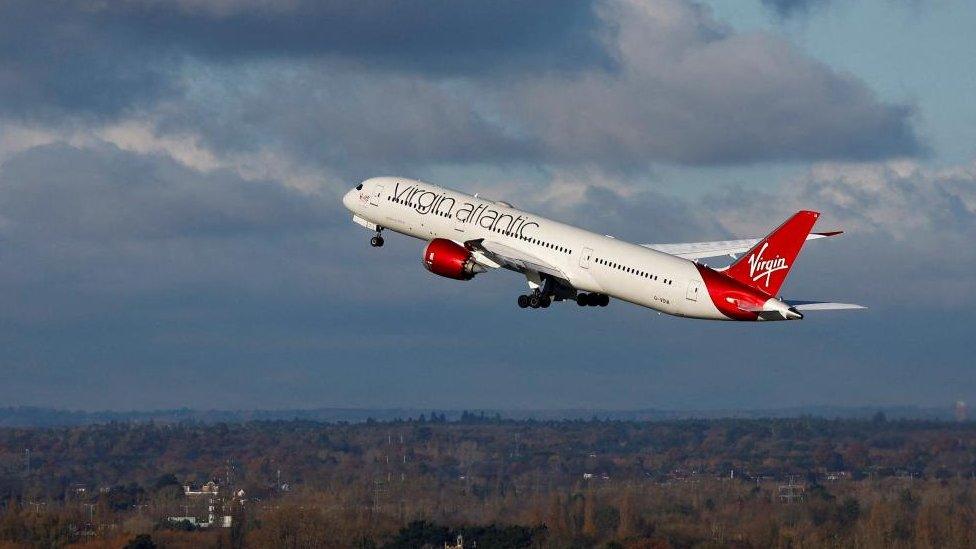
- Published29 November 2023
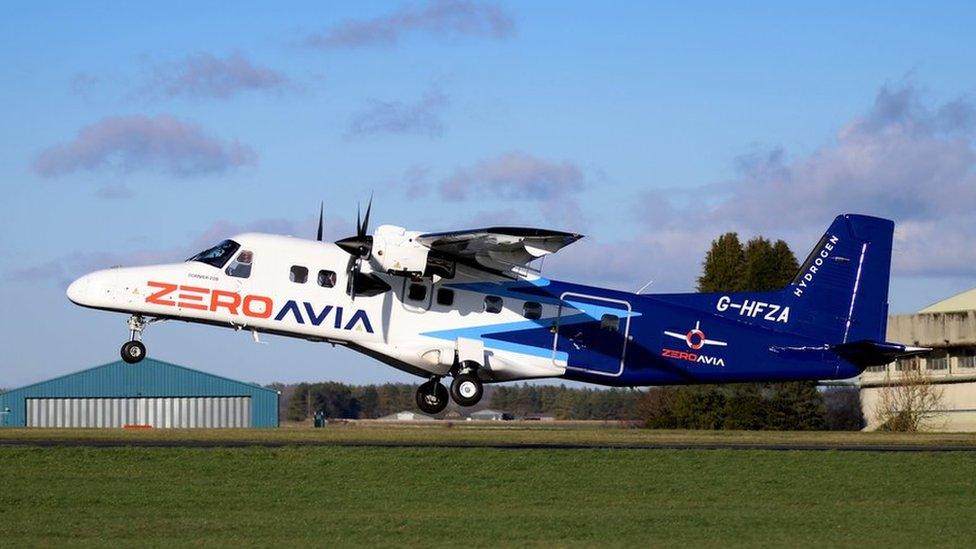
- Published28 February 2023
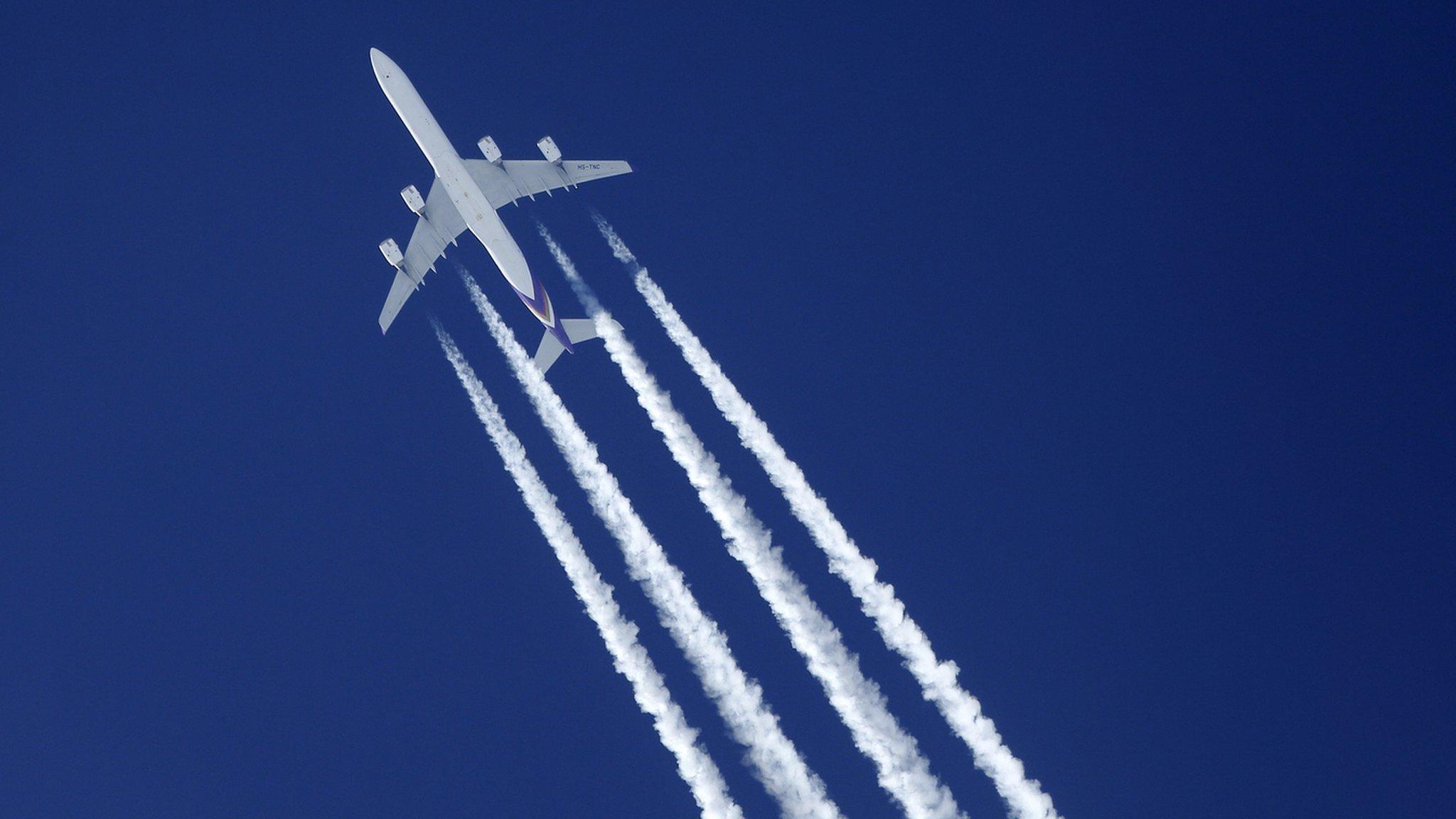
- Published6 December 2023
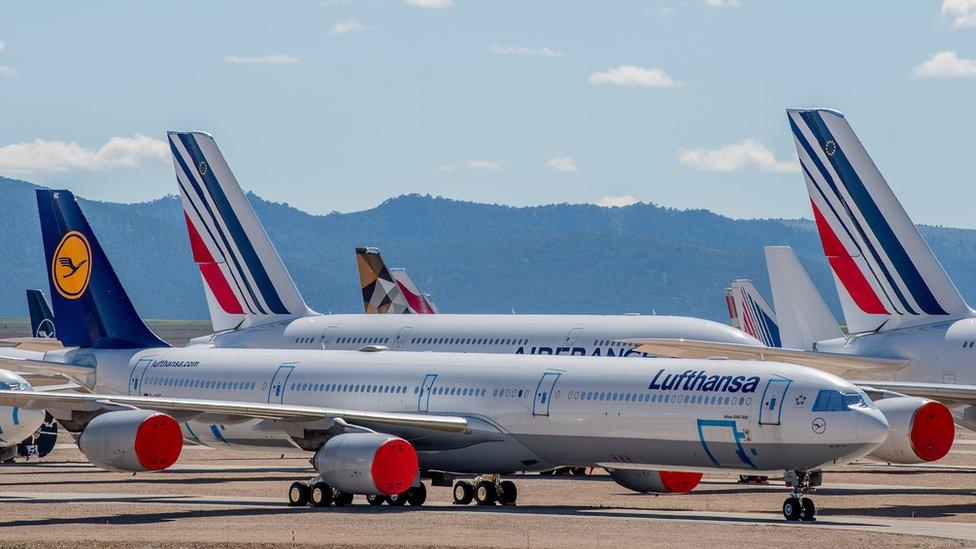
- Published17 April 2023
